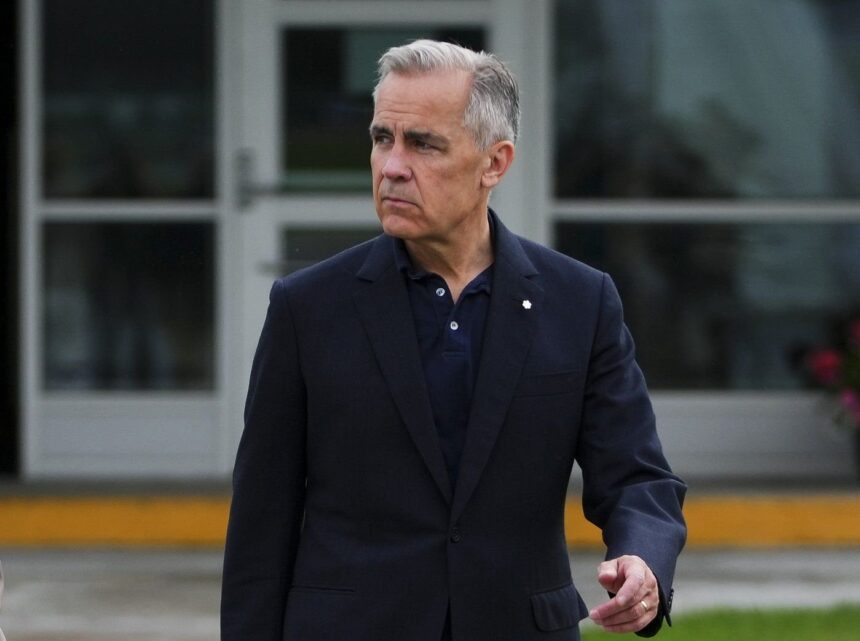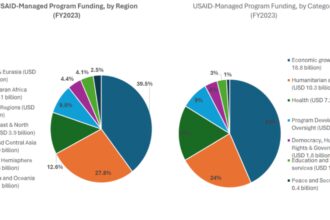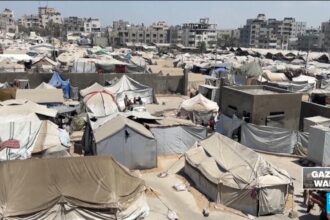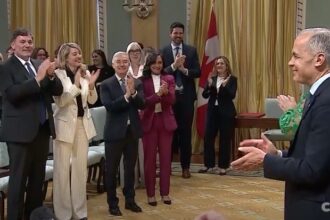In a rapidly escalating Middle East crisis, former Bank of Canada governor Mark Carney called for immediate de-escalation following the United States’ precision strikes against Iranian military installations early Monday. The attacks, which targeted key nuclear and missile facilities, have thrust the region into what Carney described as “an extraordinarily volatile situation with global implications.”
“We are witnessing a dangerous inflection point that threatens not just regional stability but global economic security,” Carney told reporters during an emergency press briefing in Ottawa. The respected financial expert, who also served as Governor of the Bank of England, emphasized that Canada must prepare for potential economic turbulence should the conflict intensify.
The U.S. strikes came in direct response to Iran’s ballistic missile attack on Israel last week, which itself followed months of proxy warfare through Hezbollah and other Iranian-backed militias. Pentagon officials confirmed that the operation successfully degraded Iran’s military capabilities while avoiding civilian casualties, though Tehran has disputed these claims.
Prime Minister Trudeau’s government has maintained measured diplomatic support for the American action while emphasizing Canada’s commitment to regional peace. “Canada stands with our allies in defending international order, but we must pursue all diplomatic channels to prevent further escalation,” Foreign Affairs Minister Mélanie Joly stated during Question Period.
Economic analysts are already warning of potential market instability. The Toronto Stock Exchange experienced significant volatility in early trading, with energy stocks showing particular sensitivity to the news. “Oil markets are responding predictably to conflict in the Persian Gulf,” noted Samira Haddad, chief economist at RBC Capital Markets. “We’re seeing risk premiums build into crude prices, which could eventually impact Canadian consumers at the pump.”
Carney, drawing on his extensive experience in global financial systems, outlined several concerning scenarios. “Energy price shocks, shipping disruptions through the Strait of Hormuz, and cascading effects on global supply chains all represent serious threats to economic recovery,” he explained.
The conflict places Canada in a delicate diplomatic position, balancing solidarity with U.S. and Israeli allies against the risks of further regional destabilization. Defense Minister Anita Anand confirmed that Canadian military assets in the region remain on heightened alert but emphasized that “no direct Canadian military involvement is contemplated at this time.”
Regional experts suggest the Iranian response will be calculated. “Tehran faces difficult choices,” said Dr. Amir Haghighi, Professor of Middle Eastern Politics at the University of Toronto. “They must appear strong domestically while avoiding actions that could trigger an overwhelming Western military response.”
International reaction has been predictably divided. While G7 nations expressed cautious support for the American strikes, Russia and China condemned them as violations of Iranian sovereignty. UN Secretary-General António Guterres has called for an emergency Security Council meeting, warning that “the world cannot afford another major conflict.”
For ordinary Canadians, the crisis raises questions about energy security and the potential for broader international instability. The government has assured citizens that contingency plans exist for various scenarios, including potential impacts on global trade and energy supplies.
As tensions continue to evolve hourly, Carney’s final comments reflected the gravity of the moment: “History teaches us that conflicts like this can quickly spiral beyond anyone’s control. The immediate priority must be creating space for diplomacy to function.” His words leave us wondering: in a region where cycles of retaliation have become normalized, can diplomatic channels still prevail when military options have already been exercised?










